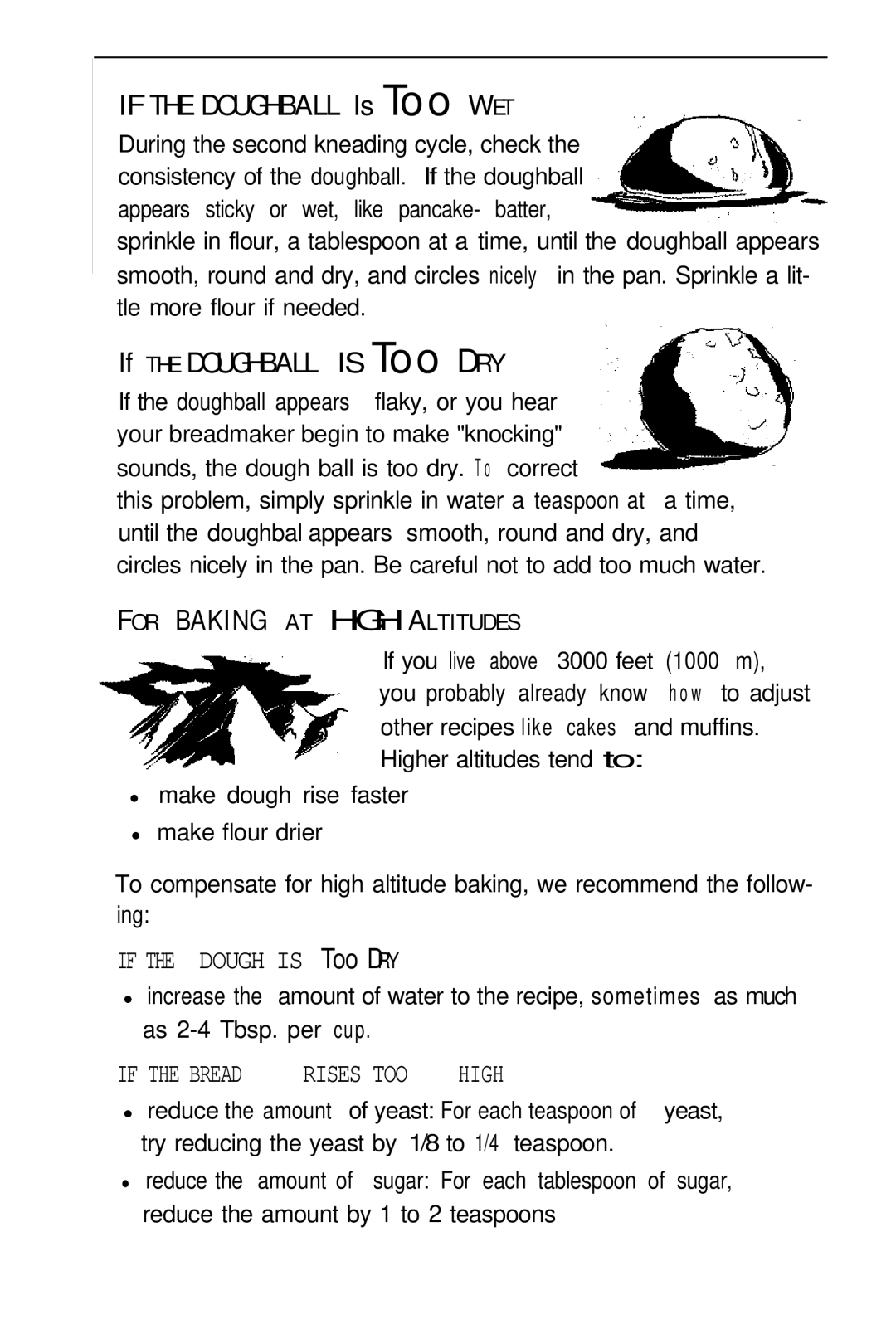
IF THE DOUGHBALL Is Too WET
During the second kneading cycle, check the consistency of the doughball. If the doughball appears sticky or wet, like pancake- batter,
sprinkle in flour, a tablespoon at a time, until the doughball appears smooth, round and dry, and circles nicely in the pan. Sprinkle a lit- tle more flour if needed.
If THE DOUGHBALL | IS Too DRY |
|
|
|
If the doughball appears flaky, or you hear |
|
| ||
your breadmaker begin to make "knocking" |
|
| ||
sounds, the dough ball is too dry. T o correct |
|
| ||
this problem, simply sprinkle in water a teaspoon at | a time, | |||
until the doughbal appears smooth, round and dry, and |
| |||
circles nicely in the pan. Be careful not to add too much water. | ||||
F OR B A K I N G AT | HIGH AL T I T U D E S |
|
|
|
| If you live above | 3000 feet | (1000 | m), |
| you probably already know | h o w | to adjust | |
| other recipes like | cakes and muffins. | ||
| Higher altitudes tend to: |
|
| |
•make dough rise faster • make flour drier
To compensate for high altitude baking, we recommend the follow- ing:
IF THE DOUGH IS Too DRY
•increase the amount of water to the recipe, sometimes as much as
IF THE BREAD RISES TOO HIGH
• reduce the amount of yeast: For each teaspoon of yeast, try reducing the yeast by 1/8 to 1/4 teaspoon.
•reduce the amount of sugar: For each tablespoon of sugar, reduce the amount by 1 to 2 teaspoons
